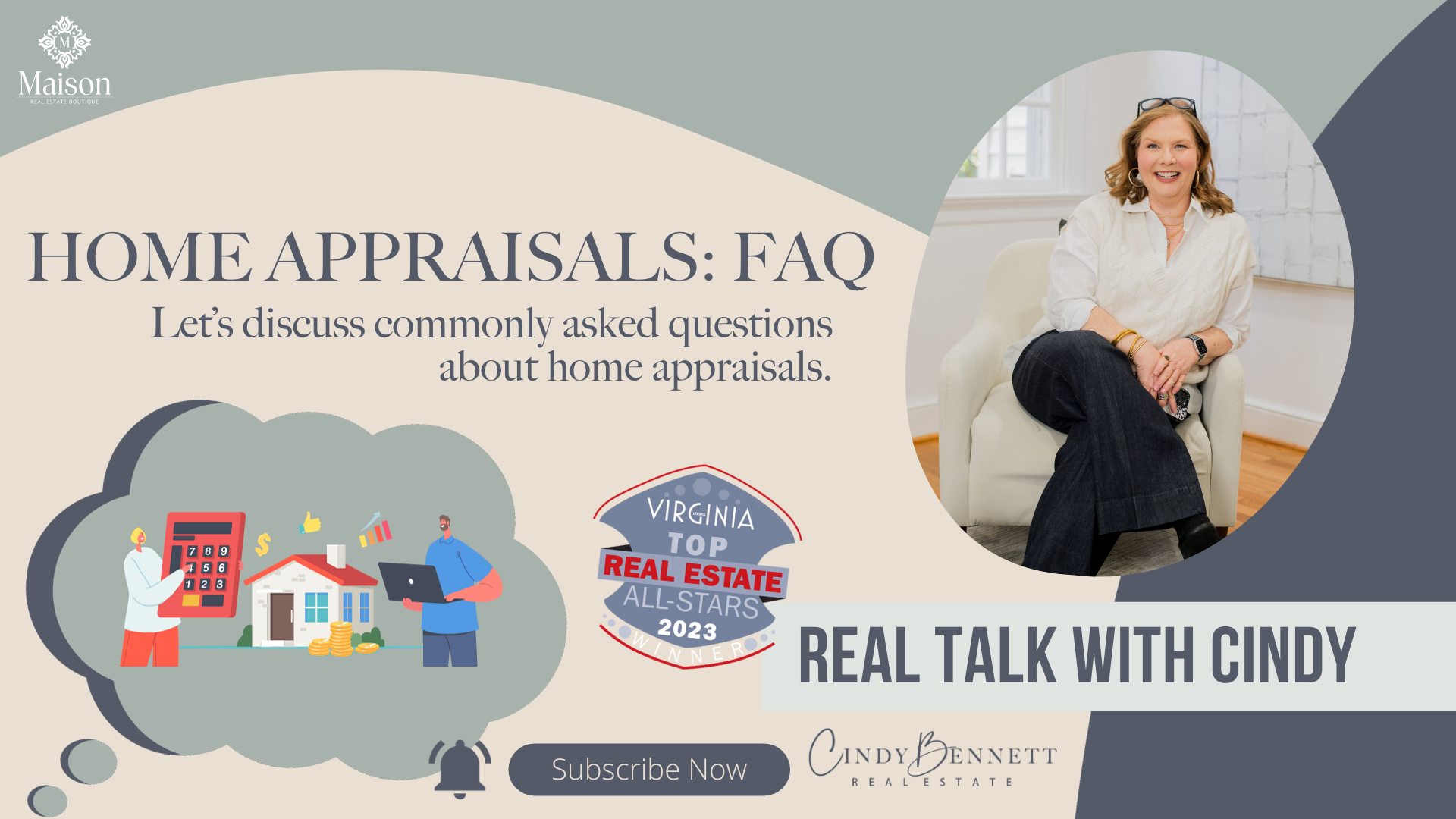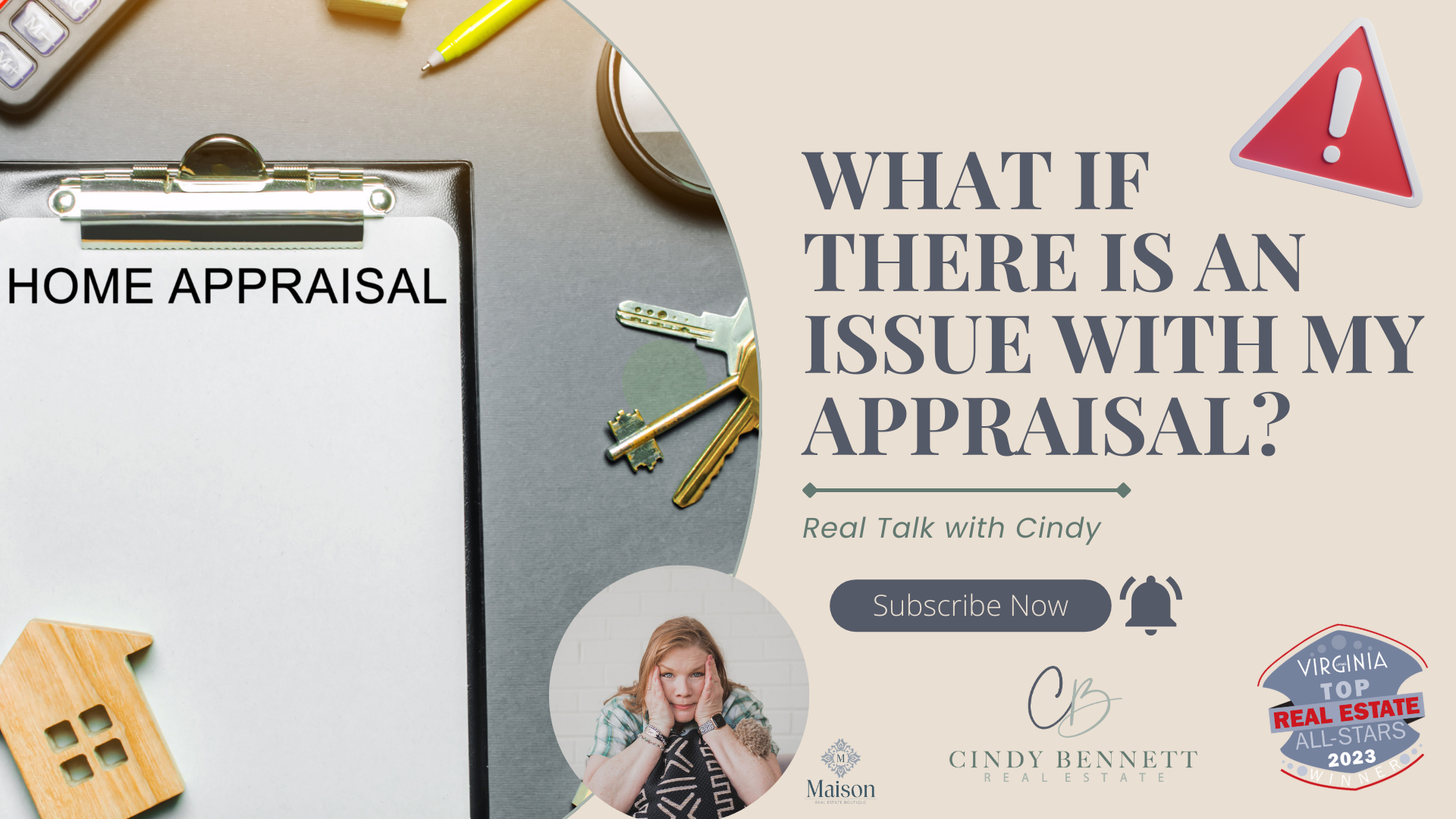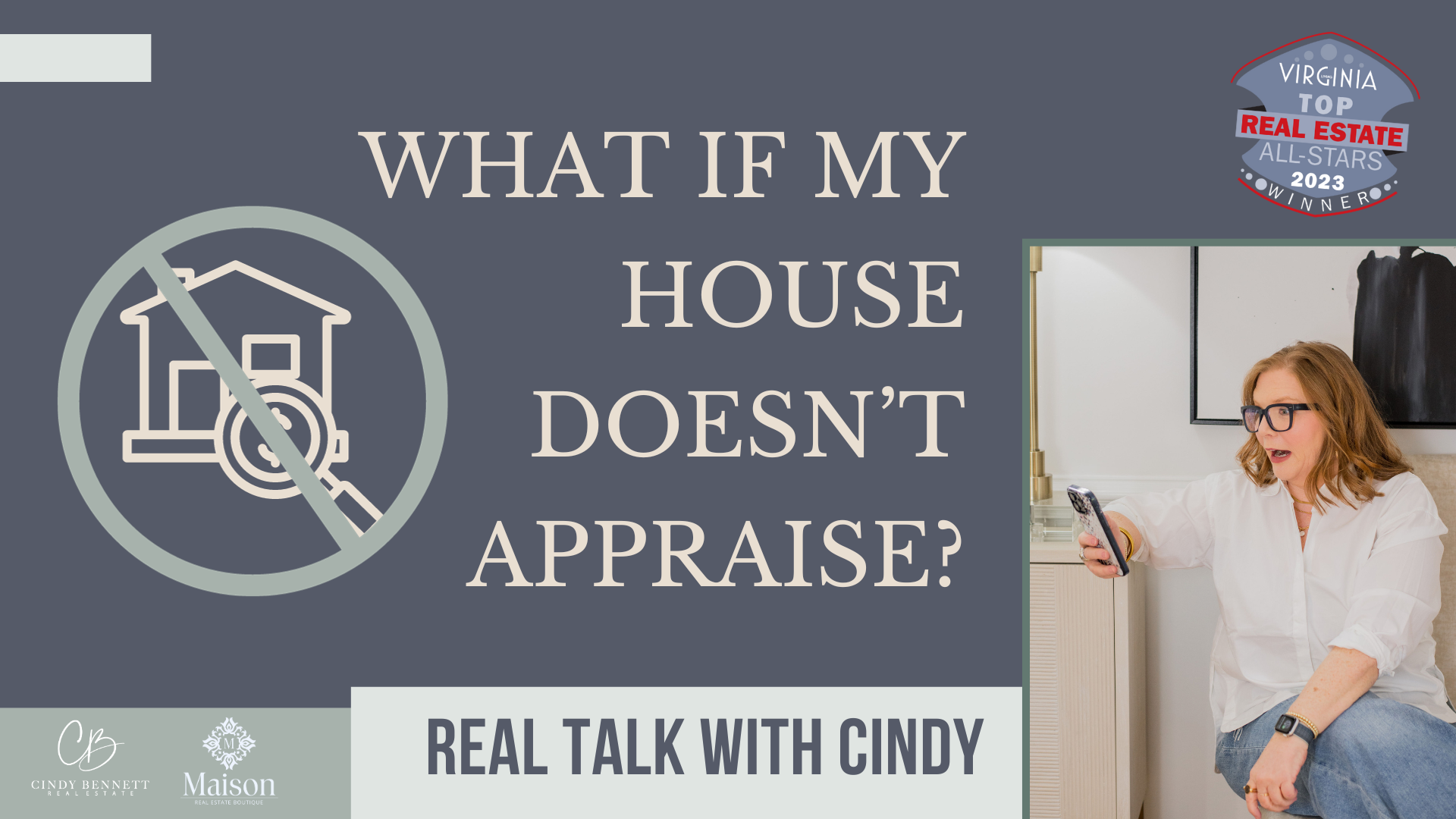richmond realtor
Keep on top with latest and exclusive updates from our blog on the Los Angeles real estate world. Cindy Bennett Real Estate posts about tips and trends for buyers, sellers, and investors every week. Whether it be about staging your property or a snapshot of the market, this is your one stop shop.

Did you know that out of all of the agents that are out there licensed, 49% of them have sold one home or none? That's kind of crazy to think about. So if you're thinking about buying or selling a home, and you're thinking about who you want to help you in this process, here are some tips on hiring a realtor. It would be really easy for me to say, if you're there in the metro Richmond area call me, done. But maybe you're in another market. Maybe you want to buy a home in another state. Maybe you live in this area, and you want to move to Oklahoma or somewhere else. What are the things that you want to look for when you're hiring an agent? Number one, see what they've done and what their experience is (which isn't necessarily that they are the top producer, standing in the ad in the magazine saying I've sold over 150 homes this year). Usually those people aren't doing that all themselves and there's a bandwidth situation where you're probably not going to get the attention that you need if an individual is selling 150 homes in a year. Another thing to consider is what you want to look at is communication. How do you want to be communicated with? How do you want to communicate with your agent? How accessible do you want/need them to be? So on and so forth. So make sure that you have somebody that you feel comfortable with and can communicate well with. So if they love texting, and you are a phone call kind of person, make sure that you're on the same page, and that you're going to be able to communicate well with that person throughout the whole process. Buying a home or selling a home can be a very emotional, and very complex, logistically, sort of experience. So you want to make sure you have good open lines of communication. Looking at other things that might be important to you. In an ideal world, how do you build out that perfect agent? Make a list of questions to ask them, like, how many houses have you sold, that are getting multiple offers? How do you handle those multiple offer situations? When you're hiring an agent, picture yourself as really hiring somebody who's going to help you and be on your team. So make sure that the things that are important to you are the questions that you're asking them so that you end up having a great experience. Not to say new or old or whatever the agent's experience is, everybody has a different case and a different scenario that will look perfect for them but don't just hit the first agent you trip over. Because this is an emotional and complex experience, you want to make sure that you have the best one. So if you're looking to buy in the Richmond metro area, I would love to help. Reach out to me and if you want to buy somewhere else, I have great connections with agents all over the country and I'd love to put you in touch with somebody who can get you where you want to be.
Read more"I think I want to sell my house, but I don't feel like doing anything to it. Can I just put a sign in the yard, get it on the market, and be done with this whole thing?" Sometimes when you're a seller, those are the things that come to mind. That's what you really would like to do, right? It's kind of a pain to get your home ready for market. And we're in a seller's market, right? This ought to be easy, your house is pretty nice, just throw a sign in the yard, and let's just get it gone. Before you do that, let's think about the ramifications of putting your home on as is and why you may or may not want to do that. First off, think about the reasons why you might want to put your home on as is. So yeah, that's kind of a pain. But often, people think "I want to go as is", and really, their home doesn't need anything except maybe some paint, some caulk, a little touch-up here and there, it's not that big of a deal. If you don't have time to do some of those things that in a lot of cases can be done by the homeowner, I have a great bunch of resources, handy people and contractors, painters, etc., that can come in and knock those things out in just a couple of days. But let's say it's a financial thing and everything is just a little bit of a bigger deal than the paint, the caulk, and so on. The kitchen is older or whatever. Usually, when you say as is, buyers, especially in this climate of higher interest rates, where buyers are being a little more picky, they're being a little more particular with how they spend their money. When you say as-is people immediately think what's wrong, something's wrong. And it's going to be very expensive for me, and it's going to make them not even come to look at your house. So in most cases, you're going to be better off by just letting it letting it roll. So if you know that you've got some plumbing issues, probably they're going to be, you know, maybe no major, big deal, but it's going to have to be done, you're almost always going to be better off getting someone to do those things before putting your home on the market. Even if you are short on money, and you need to find somebody who's going to let you pay for those things out of the proceeds when you actually sell. But if you do those things ahead of time, then you're going to have a better experience overall. The buyer is going to feel more comfortable purchasing the home and it's going to be a smoother transaction, smoother process, and get it sold faster and usually for more money. So as soon as you say as-is, people immediately think there might be something wrong. But if you just let people have an inspection, remember to disclose if there are actually major issues with your home. If the panel box is sparking, you need to let people know that we are a buyer-beware state, but we do have to disclose material defects or major issues to the home. So if you're aware of them, you have to let people know. And better than letting people know, getting them fixed beforehand. Even if it takes a little bit of money, a little bit of time, a little bit of hassle. Trust me, it'll be worth it in the end. There are certainly cases where selling your home as-is is the way to go. But that's a case-by-case situation. And pricing has a big effect on that too. So if you've just inherited grandma's house, you don't know anything about it. You don't have the time, the bandwidth, the money, the energy to get those things done, as is maybe the way to go, but we're then going to price accordingly. So case by case situation, give me a call, send me a message. Let's set up a time to take a look, talk through it, and see what your options are. If you're in the Richmond metro area, I'd love to help give me a call, and let's get started.
Read more
We talk a lot about things that you want to make sure you take away, if you don't want the buyers to have that item, whether it's a chandelier, or a piece of shrubbery, or the tree you planted when your child was born. You want to get those things out of the picture out of the equation before buyers look at it so that they don't get tempted and want those things and it feels like a negative when you remove them. But what we don't talk about as much is what do you leave for the buyers? What are the things that are okay to leave? And what are the things that you really need to move on out of the house. Check out the video above to find out what you should do with the things you don't want to keep before you move out.
Read more
If you're selling a home in the state of Virginia, what do you need to disclose? If you have ever sold a home in another state, bought a home in another state, you may be familiar with the copious amounts of paperwork that require you to disclose every little detail about your house, and if you've ever had a problem, if you've never had a problem, or if you don't know. In the state of Virginia, we have a one page document called the residential property disclosure, and it really is just a disclaimer, saying as far as I know, everything's good. But hold on just a second, because if you know of material defects to your home, before you sell it, you do need to disclose those to the buyer. And I know it sounds kind of like a gray area, like what is the material defect anyway, but think about the things that would matter to you if you were buying a home. You don't want to buy a home, only to discover that the basement fills up with water every time it rains. That is something you need to disclose. You don't want to buy a home and find out that every time you turn the lights on in the family room, the electrical panel arcs. Those are major issues. They are material defects that need to be fixed or repaired. So you do need to disclose those or better yet, just fix them before you go on the market. Remember, whether you're buying or selling in the state of Virginia, inspections are the buyers responsibility and I always use this as a as a good example of why this rule works. The little old couple that has lived in the house for 40 years, they may never take a bath. They each take one shower a day they sell the home, they think everything is fine. The family moves in with four kids back to back to back to back baths and the bathtub leaks. Well, the little old couple had no idea because they never used the house in that way. So this is why I like our rules better than the rules in some other states. But being aware of what you're purchasing, being aware of what you're selling goes a long way to making a successful transaction. If you have questions about what's a material defect? What do I need to disclose when I'm selling my house, give me a call. Let's talk and walk you through whether you should fix it, disclose it, repair it, or sell it as is with that disclosure in place. Give me a call send, me an email, shoot me a message and let's talk.
Read more
As we head into the busiest season for real estate, the spring and summer market, one of the questions I get asked all the time is how long it takes to sell a home from start to finish. And I usually have a question back when someone asks me that, and that is, what are your plans? What are your goals, let's take a look at your house, because it depends. In the video above I talk about a general timeline that you might experience, as well as some things that may change a "standard" timeline.
Read more
This month celebrates my son's 21st birthday (how??) so I asked him to pick the recipe this month. This is what he had to offer, as we head into spring, and it feels like a pretty solid choice! Let me know if you try it! BAKLAVA CRINKLE "CAKE" INGREDIENTS 1 package filo dough 2 sticks butter, melted 1 cup simple syrup Pistachio and walnut pieces for garnish For the filling: 1 cup walnut pieces, crushed 3/4 cup pistachio pieces, crushed 2 tbsp sugar 1 tsp ground cinnamon For the custard: 1 cup milk 2 eggs 1 cup sugar 1 tablespoon vanilla extract 1 teaspoon almond extract (recommended, but optional) For the syrup: 2 cups sugar 1 cup water 1 tsp lemon juice 1 tsp orange flower water INSTRUCTIONS Start by preparing the simple syrup. In a pot add 3/4 cup sugar and 3/4 cup water. Stir together, then place on the stove on high heat. Bring to a boil then lower heat to medium. Add lemon juice & orange flower water. Simmer for 10 minutes. Remove from heat & allow to cool completely. Preheat the oven to 350. On a flat surface, place 2 sheets of filo dough then spread a row of the filling along one side of the dough leaving about 1" edge. Fold the edge over the filling then start to roll. Continue rolling this "sausage" until you get halfway finished, then start to crinkle the remaining filo into itself. Place in a baking dish then repeat the process until you've used all the ingredients. You're basically just smushing these crinkle "sausages" together as you go. Bake at 350 for 10 minutes. Remove from oven and drizzle with melted butter. Bake at 350 degrees for 10 minutes or until golden brown. Mix together custard and pour over (carefully!) Bake at 350 for 30-40 minutes. Remove from oven. Drizzle 1 cup of the simple syrup over the entire dessert. Garnish with crushed pistachios and walnuts, and dust with cinnamon if you like. Allow to come to room temperature before serving. Cut and enjoy!
Read more
So if you've followed along thus far with all of my videos about appraisals and how they might impact your transaction, thank you. This is the sort of wrap-up. I'm going to talk about a couple of frequently asked questions, commonly asked questions, and maybe a few interesting experiences that have happened with appraisals, that I don't know, kind of throw a curveball, or give you a little bit more food for thought. So one of the commonly asked questions is, if I'm selling my home, and the house contracted for $450k, the appraisal came in at $425k, does that mean I'm losing $25,000? Well, remember, you never had the $450k. So that's sometimes the data just is what the data is and unfortunately, or fortunately, the appraisers don't really consider the the vibes of the house, the vibes of the deal. So just because you are the purchaser and loved the house enough to be willing to pay $450k, if they don't love the house enough to be willing to pay $450k, and they also have a suitcase full of cash to match their vibes, it doesn't really matter, because most people who are getting a loan are going to have an appraisal, and that appraisal is going to be sort of the buck stops here of the value of the house. So yeah, you didn't get what you wanted to get maybe, or you didn't get what you were thinking you were gonna get. But odds are, you're not going to have a drastic difference in another set of data or another appraiser coming with another buyer, perhaps, if that buyer too does not have a suitcase full of cash to bridge the difference between $425k and $450k. Does that make sense? So let's look at the flip side of the same coin and let's say I'm the seller, and I have my house contracted with a buyer for $450,000, we get the appraisal back. And lo and behold, it came in at $475k. Am I clicking up my heels and saying, oh my gosh, I just made an extra $25,000? Not so fast. So this is great for the buyer. In most cases, the buyer does then have a little instant extra equity beyond what they had thought, but at the end of the day, know that price only shifts downward. Should the appraisal come in low, it never goes up. So while it might be a little frustrating, and you might feel like you lost money or left money on the table, remember, you didn't have that money to begin with. This is just kind of a numbers accounting situation and in many cases, you're not even going to see the appraisal. So don't get real tied up in what the lender or the appraiser determines what the value of your house is. If it goes beyond the sales price that you've agreed upon, just remember that you agreed upon that sales price and unless you have other people who were willing to pay more for your house, this is what you agreed to and this is what the open market was willing to value your house at. Thanks for following along if you have any other questions about appraisals or how they can affect your transaction, whether you're buying or selling, drop in the comments or reach out to me and I'd love to help you get your questions answered so you're more well informed when you're ready to buy or sell your home.
Read more
Okay, so let's say you got a contract for $450,000, but the appraisal came in at $425,000. Maybe you don't have $25,000 extra to throw at it. If you're the buyer, you're trying to get creative and think of other solutions. Maybe you go back to the seller and you say, hey, you know, well, we're able to do $435,000, but that's all we can do. We'll put $10,000 extra towards it, but that's all we can do. That's all we're able to do, willing to do, whatever. Maybe the seller comes back and says, yes, that works. Maybe you split the difference. Again, in real estate, as long as everybody agrees almost anything, as long as it's legal, is on the table. Everybody just has to agree and it all has to be in writing. Follow along for more appraisal tips, tricks, understandings, commonly asked questions, and situations that might arise whether you're on the buying end or the selling end.
Read more
So what do you do if there is an issue with the appraisal? Let's give an example. You purchase a house for $450,000 and the appraisal comes back and it's $425k. Now, what do you do? Well, in our contract, and again, this is the Central Virginia contract. So I'm in the Richmond area, surrounding counties, we have our own particular contract, the contract where you are may be different. In our contract, it states that within five days of receiving that appraisal, the purchaser has the right to request in writing, whatever sort of resolution they would like from the seller and that can be a number of different things. First off, they can request that the price be reduced. So if the house is $450,000, that's what the contract price is, the appraisal comes in for $425k. Maybe you're the purchaser and you don't have an extra $25,000. You may have to go to the seller in writing and say, 'Can you please reduce the price to $425k'. Now they can say yes, or they can say no, or they can present a different option. But if you cannot come to a resolution, then all parties can walk away. No harm, no foul. Another resolution might be that, say you were in a competitive situation when you wrote the offer and you wrote the offer for $450k. There were a number of other offers, you do have the cash to back it up, and you say, oh rats the home appraisal came in at $425k, but we really want the house. We feel like it's worth $450k. It's worth 450 to us and we're willing to throw an extra $25,000 in there to bridge that gap. Obviously, you need to have 25,000 extra dollars. Or in some cases, you can kind of maneuver your loan a little bit to come up with a little extra cash, but that's between you and your lender. So the buyer can actually pay the cash difference, the lender doesn't care. What the lender cares about is if they're giving you 80% of the value, they're only going to give you 80% of the value that the appraiser says it's worth, period, end of story. They're not going to give you any extra because you really liked the house because it was a competitive situation. They don't care because it's the bottom line number for the lender and that is ultimately who the appraiser works for.
Read more
So maybe you've followed along with my appraisal series, maybe you're in a transaction, maybe you're contemplating what might happen in a transaction and you're thinking, but Cindy, we don't want to put an extra $10,000, $20,000 in a house if it didn't appraise. What do we do now? Well, obviously, nobody wants to feel like they're overpaying and I think overpaying is a real relative term when we are in the market that we've been in for the last few years really. Overpaying really is a nebulous idea. If 10 people want the house and the house was listed at $410k, and it gets bid up to $450k, and there were multiple offers. You competed against nine other people, you got the house at $450k. Good for you. You won. But now the appraisal comes in at $425k and you don't know what to do. You don't have an extra $25,000 to get you there. So there are a few options. And I've talked about some in other videos. But what if you want to dispute the appraisal? What if you feel like hey, this is not right. I feel like this house is really worth $450k and I want to make sure that my deal doesn't fall apart because we love this house. Or maybe you're the seller and you say listen, I had 10 people want to buy my house, and fair and square, we got bid up to $450k. Now some person is coming in and telling me and the buyers that it's only worth $425k. You're really throwing a wrench in my plans. What do you do in those cases? Well, you can dispute an appraisal, but it is a process. Because the lenders really want to make sure that it's an unbiased sort of set of data and an unbiased opinion of value, they're not real keen on the agents, whether listing or buyer's agents, or the buyers and sellers getting real involved in that process and trying to manipulate that data. Because again, unbiased means they're looking at data, and the data is the data. But I have had situations where we were successfully able to dispute the appraisal. It doesn't happen often though. You really have to have, again, data to go back to the appraiser and say, here is a comparable that you did not use. Why didn't you use this comparable? It almost never works, because these people do their job and the appraisal has to be reviewed by someone else in their office as well. It's not a one person saying check, yes, this house has, you know, everything that it takes to be a $450,000 house. It really has to have all of the supporting information and it gets reviewed a number of times before that stamp goes on to say this is complete. So if you do have comparables that show something or when you look at the appraisal, they have missed something that is an integral part of your house, it's got a brand new roof, but they noted that the roof was old because maybe they made a mistake or you know, they're human. So maybe somebody didn't have all their coffee that day and thought the roof looked old. There is a process, through which it's a little different with every lender, you can dispute the appraisal, but just remember that odds are it's not usually going to go in your favor. So you may need to look at some of the other options to work that appraisal out. If you have any questions about the appraisal process or the appraisal dispute process, drop them in the comments or reach out to me. I'd love to help you. Figure out how you might deal with such an occurrence. But if you're currently in a transaction, I'm going to say reach out to your lender, your agent or your attorney and figure out how to best deal with that situation.
Read more


